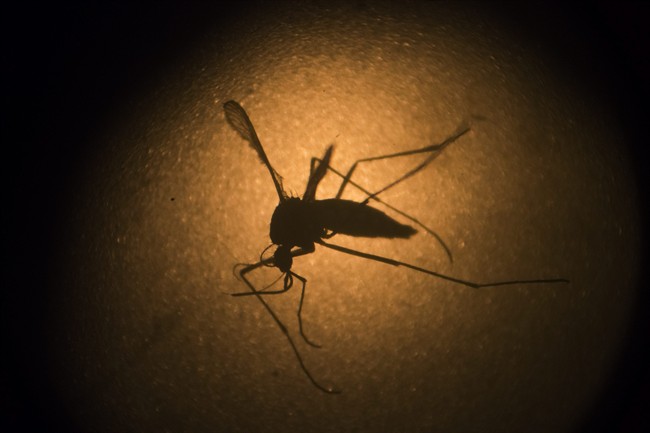The government of New Brunswick is advising travellers to check in with health care providers before heading to areas affected by the Zika virus.

“We continue to remind anyone travelling to these regions that they should seek health advice prior to travel,” said Dr. Jennifer Russell. acting chief medical officer.
READ MORE: Travel advice for those worried about Zika virus
The province, along with doctors across the country and in the United States, are issuing advisories to travellers, specifically pregnant women, as contracting the virus while pregnant can cause adverse birth defects and neurological problems in babies.
Children who have contracted the virus can be born with abnormally small heads and brain development issues.
READ MORE: WATCH: B.C. woman warns others against booking vacations while Zika virus continues to spread
Zika virus is transmitted through mosquito bites. Adults who have the virus could present with symptoms including fever, headache, conjunctivitis (pink eye) and joint and muscle pain.
Affected areas include Central and South America and the Caribbean.
There are no treatments or vaccines for the Zika virus. The New Brunswick government is advising travelers try to avoid being bitten if they are in areas affected by the virus.
- Protect yourself from mosquito bites at all times, as the virus is transmitted by a mosquito that can bite in daylight and evening hours.
- Cover up: light-coloured, long-sleeved, loose fitting, tucked-in shirts, long pants, shoes or boots (not sandals), and a hat.
- Use insect repellent on exposed skin: insect repellents that contain DEET or Icaridin are the most effective, and use as directed by manufacturer.
- Consider your accommodations: stay in a well-screened or completely enclosed air-conditioned room.
- Sleep under a bed net, preferably one treated with insecticide.
- Apply a permethrin insecticide to clothing and other travel gear for greater protection.
READ MORE: Canadian Blood Services to defer donations from travellers to Zika-endemic areas
- Wegovy now in Canada: Who should (and shouldn’t) use the weight-loss drug
- A spoonful of olive oil a day could reduce risk of death from dementia: study
- N.B. woman must move to Toronto for life-saving lung transplant. She can’t afford to go
- Amid bird flu spread, Canada boosts surveillance and testing at border




Comments